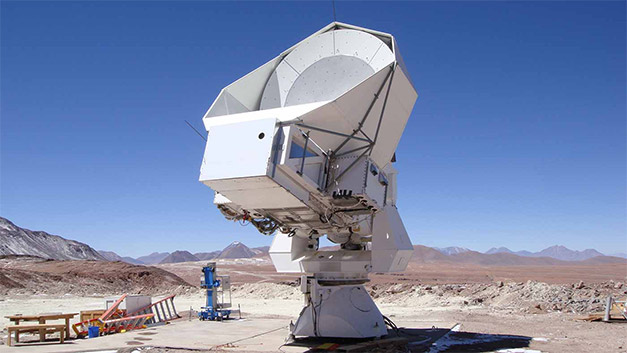Aqua Cooling aids search for Universe origins
2nd April 2017
UK: The search for the origins of the Universe is being advanced with the help of air blast radiators supplied by Fareham-based engineering firm Aqua Cooling.
For the past five years the specialist chilling equipment has been used in a multi-million dollar astronomical observatory in Chile’s Atacama Desert. Additional units have now been fitted by Aqua Cooling as more telescopes are brought in to search the skies for a particular type of cosmic wave that experts believe was created immediately after the Big Bang.
Scientists at James Ax Observatory are undertaking an experiment into the polarisation of background radiation in a project named Polarbear and have already published significant findings. The facility is positioned 5,200m above sea level — it is one of the highest observatories in the world — and is manned by a team of researchers from several US universities including the University of California, San Diego, alongside several international partners.
The scientists’ aim is to prove the theory of inflation – that the Universe grew rapidly after the Big Bang, inflating like a balloon. Key to proving the theory is detecting a certain type of background radiation, which the Ax Observatory has already done. The team’s success has led to funding for an array of three telescopes to move the research forward.
Aqua Cooling was asked to supply more of its air blast radiators to support the new Simons Array of telescopes. Cooling is essential because the receivers on each of the telescopes must operate at cryogenic temperatures. This is achieved using commercial helium gas-cycle refrigerators and these refrigerators have compressors that are cooled by Aqua Cooling’s radiators.
“The original Polarbear experiment has been running off an Aqua radiator for more than five years,” explained Nathan Stebor of the University of California, San Diego. “We needed more radiators to accommodate the new receivers coming online for the Simons Array and Aqua’s solution was perfect in terms of simplicity and compatibility.”







